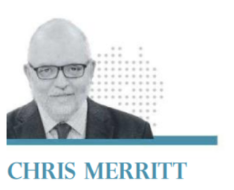Growing divide between states over proposed reforms to what we can say online

16 September 2022
It’s almost possible to feel sorry for the Attorneys-General of the states, particularly that poor sod in NSW who has the misfortune to be leading the state’s push to bring online defamation law into the current century.
Now that most of the submissions on this reform project have been submitted, there is every likelihood that NSW’s Mark Speakman will either be caught up in a bunfight, forced to start again from scratch, or both.
In retrospect, some sort of barney was inevitable; in theory defamation law is supposed to be about balancing free speech against the right to restore a damaged reputation.
It serves the private interest of individuals but it also serves a public interest that is increasingly important in the era of social media: it enables society to hold online trolls to account.
But there are other interests. Once you scratch the surface, this body of law is also about money – who gets it, who has to pay and who gets to clip the ticket on the way though.
Right now, a group of officials working for Speakman and the other state Attorneys-General is sifting through submissions outlining wildly different views on where the law should set the balance between those who are sued and those who finish up with the money.
Because the internet is the future of communications, decisions made by these officials will have enormous implications – not just for tech giants like Google and Facebook but for thousands of community groups that are legally vulnerable because of their presence online.
With millions of dollars at stake, and conflicting views on key issues such as legal liability and immunity, it must now be dawning on the Attorneys-General that an exposure draft of their proposed reforms has sharply divided the interested parties.
In essence, the submissions on that exposure draft have presented the Attorneys-General with a choice: should defamation law give priority to the interests of plaintiffs by ensuring they will always have someone to sue for defamatory material online, regardless of whether the defendant had no knowledge or control over what has been published?
Or should officials design a scheme based on the principle that nobody should be held liable in court for the wrongdoing of others?
One of most startling submissions has come from Perth academic Michael Douglas. If he is right, the implications of a High Court ruling last month mean the exposure draft has already been overtaken by events.
Speakman’s officials released their proposals in response to last year’s High Court decision in a case known as Voller but before the court’s ruling last month in a case known as Defteros.
The Voller decision took a broad, traditional view of what the element of publication meant in defamation litigation. That meant media organisations were found to be publishers of defamatory comments that appeared on their Facebook pages even though those comments were posted by third parties without their knowledge or consent.
That placed defamation law at odds with the principle that liability should rest with the originators of defamatory material, not those who are mere passive conduits or information.
Without change, it looked like media organisations and thousands of community groups with Facebook pages would be potentially liable for the misconduct of others.
This explains why Speakman’s officials attempted to address the Voller problem with proposals for immunities and new defences.
They argued that while they accept responsibility for material they publish on their own websites, they should not be considered publishers of material posted by third parties on websites they do not own or control and where they merely maintain an account – such as Facebook.
The premise for the reform proposals was the need to address the Voller decision, which meant anyone who “facilitates” the dissemination of defamatory material is a publisher – even if that gives rise to the injustice of holding innocent people liable for comments posted by trolls on Facebook.
But on August 17, the High Court took a narrower view and decided that Google was not a publisher of defamatory web pages that had been made accessible by hyperlinks in Google search results.
That was too late to be considered in the background paper issued by Speakman’s officials. But it could be a game changer, if the analysis in Douglas’s submission is correct.
“The test for who is a publisher is no longer broad; it has been narrowed. Moreover, it has been narrowed as regards (online) intermediaries in particular. Intermediaries do not need or deserve further statutory protections because they are no longer prima facie liable (ie, they are not ‘publishers’) in various circumstances,” Douglas says in his submission.
He writes that if it were up to him, this part of the reform project would go back to the drawing board because none of the recommendations from the officials are justifiable following what he described as the fundamental change in the Defteros decision.
Even if Douglas is right about the Defteros ruling, the states need to put the issue beyond doubt. The Voller decision affected thousands of community groups and exposed businesses to potential liability for the actions of others.
The lesson from this affair is that the courts are not best placed to ensure the law keeps pace with the complexities of online publishing. Unlike governments, they proceed on a case-by-case basis and are incapable of balancing broader interests.
That is the legitimate role for government.
Chris Merritt is vice-president of the Rule of Law Institute of Australia
Published in the Australian Newspaper
